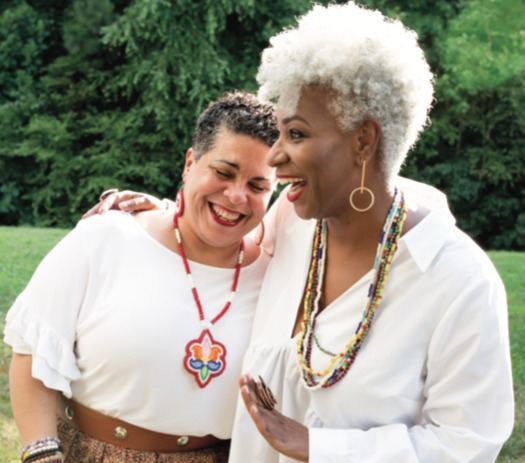
NC Women Embrace Ancient Practice of Death Caregiving
Ivette Jeffries-Logan and Omisade Burney-Scott are friends for life – and collaborators in death. Three years ago when a mutual friend realized she wouldn’t survive pancreatic cancer, the two central North Carolina women were within the circle of friends she summoned.
Over the course of about three months, the women stayed at Cynthia Brown’s side, as the community activist and one-time Durham City Council member went about the process of dying.
They rubbed her head, kept a watchful eye on her pain, and helped her decipher doctorspeak. And when her spirits appeared to lag, they’d tell her jokes and sing at her bedside.
This, Jeffries-Logan says, was a good death: “If I can help someone at the end of life heal and be clear, I will. There are some things we are required to do alone, but we are not isolated. We are community people. What happens to my nation happens to me. What happens to me happens to my nation.”
Jeffries-Logan and Burney-Scott are death doulas; their form of caregiving is both old and new. The ancient Greek word “doula,” meaning “woman servant” or “slave,” was repurposed in the 1960s to describe birth workers who offer encouragement, back rubs, and other assistance during childbirth.